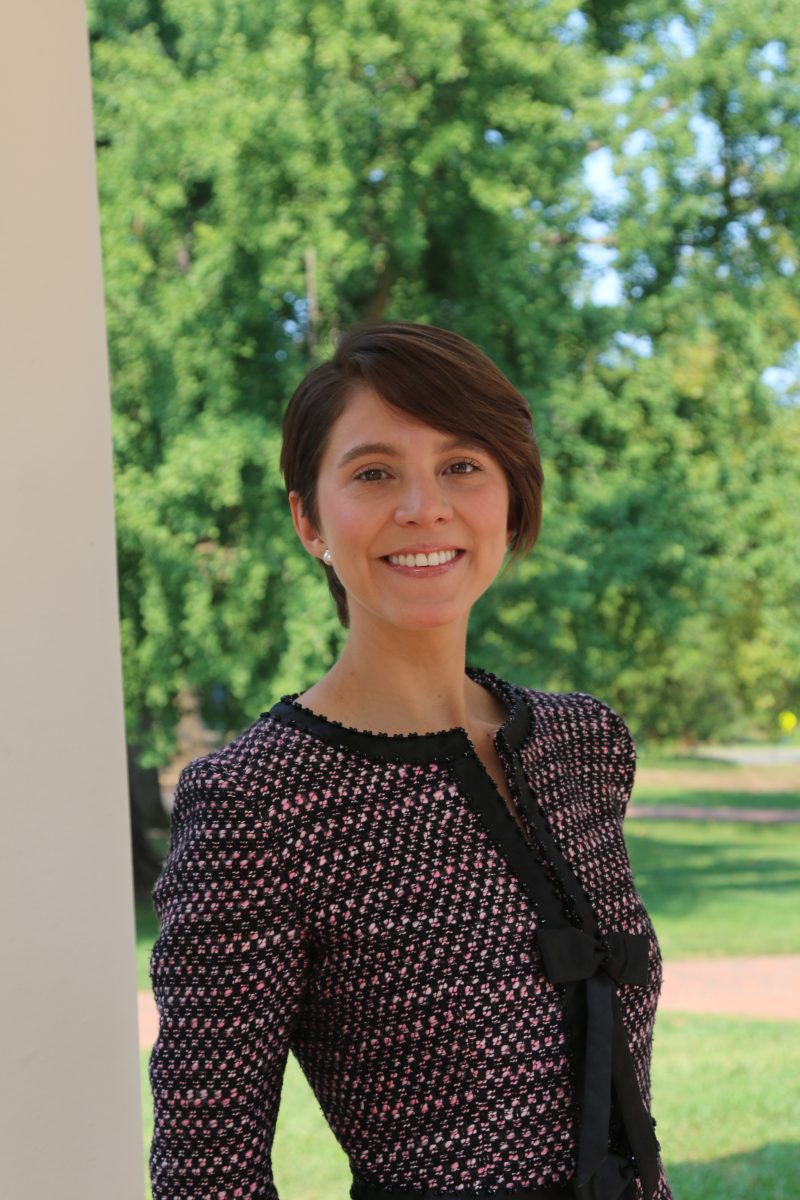Student Spotlight: Karolina Naranjo-Velasco Combines Data Science, Law, and Social Justice

For Karolina Naranjo-Velasco (MSDS ‘22), her decision to pursue an M.S. in Data Science was motivated by social justice. Growing up in the Santander region, Colombia, Naranjo-Velasco experienced the tragedies of armed conflict and the impact of inequality inflicted by decades of war.
“A civil war has ravaged Colombia for over 50 years. I lost family members, including my grandfather, to that war ,” Naranjo revealed. “As I grew up, I understood that the violence that led to my grandfather's death was rooted in deep social and economic exclusions. This realization led me into the search for justice as a personal and professional vocation.”
Naranjo’s direction was inspired by a passion for human rights and advocacy. In Colombia, Naranjo was a lawyer, specifically advocating for human rights. She earned a master’s in constitutional law from the Universidad of Sevilla, Spain, and a Bachelor of Law from the Universidad Industrial de Santander.
“I studied law in part because I wanted to find responses to systemic violence and impunity. And partly because I was afraid of dealing with numbers and calculations; I would never have thought I could be good at math!,” Naranjo admitted. “However, through my experience as a lawyer, I realized the importance of evidence for designing and implementing policies and the application of quantitative methods to drive social change.”
After becoming a lawyer, Naranjo worked in the local government of her home region, conducted research on disadvantaged populations for the National University of Colombia, and was a legal advisor to the presidential agency tasked with peace efforts between the government and the guerrilla groups that have plagued the country.
“In all of these positions, I advocated and collaborated for what vulnerable groups needed,” Naranjo said. “I realized that a lot could be explained by using the power of data to improve the lives of disadvantaged communities. If I had had adequate training in analyzing that evidence back then, I could have more easily demonstrated the injustices that were taking place.”
This led Naranjo to look at data science programs and she eventually applied to the M.S. in Data Science at the University of Virginia.
When Naranjo met with Director of Admissions and Financial Aid Patti Edson, she explained her heart and passion behind the intersection of data science and human rights.
“I wanted to add an understanding of statistics, and programming to my background in human rights,” Naranjo said. “Patti encouraged me to start coding and take the required prerequisite courses. I surprised myself and found I actually enjoy coding.”
While thinking about a next step in her career, Naranjo also attended data science webinars, including a Women in Data Science (WiDS) event at UVA, which inspired her.
“I have met brilliant and inspiring women who want to code and carve out a niche for themselves in the data science field. There is a sorority spirit in data science, and I want to be a part of it.”
Naranjo decided to apply to the 11-month residential M.S. in Data Science program and was accepted. Being in the United States has exposed Naranjo to the disparities between North and South America, which has furthered her interest in data science.
“I intend to use big data to help overcome entrenched inequalities,” Naranjo-Velasco said. “I am particularly interested in knowledge-sharing opportunities between global North and global South countries. I also seek to learn to map out the patterns of violence against human rights defenders using machine learning techniques.”
Naranjo has already sought out advice from professors, including Jon Kropko, and she enjoys the collaborative nature of the program.
"Karolina shows us that some of the best preparation for data science doesn’t have to come from the traditional fields of computer science, engineering, and stats," Kropko said. "She is a lawyer with years of experience working on human rights cases. Karolina is a wonderful example of how a focus on what data science can do in the world can help students navigate the huge amount of material in this field with vision and purpose."
“My classmates are really collaborative,” Naranjo noted. “They make critical points during our class discussions, and it is such good feedback for me because I learn from them. I hope they learn from me, too.”
Naranjo looks forward to learning more in the program and how it will impact her career ahead.
“I am eager to learn how to translate social justice into algorithms,” Naranjo noted. “Harnessing the positive impact that data can have on human lives keeps me motivated.”